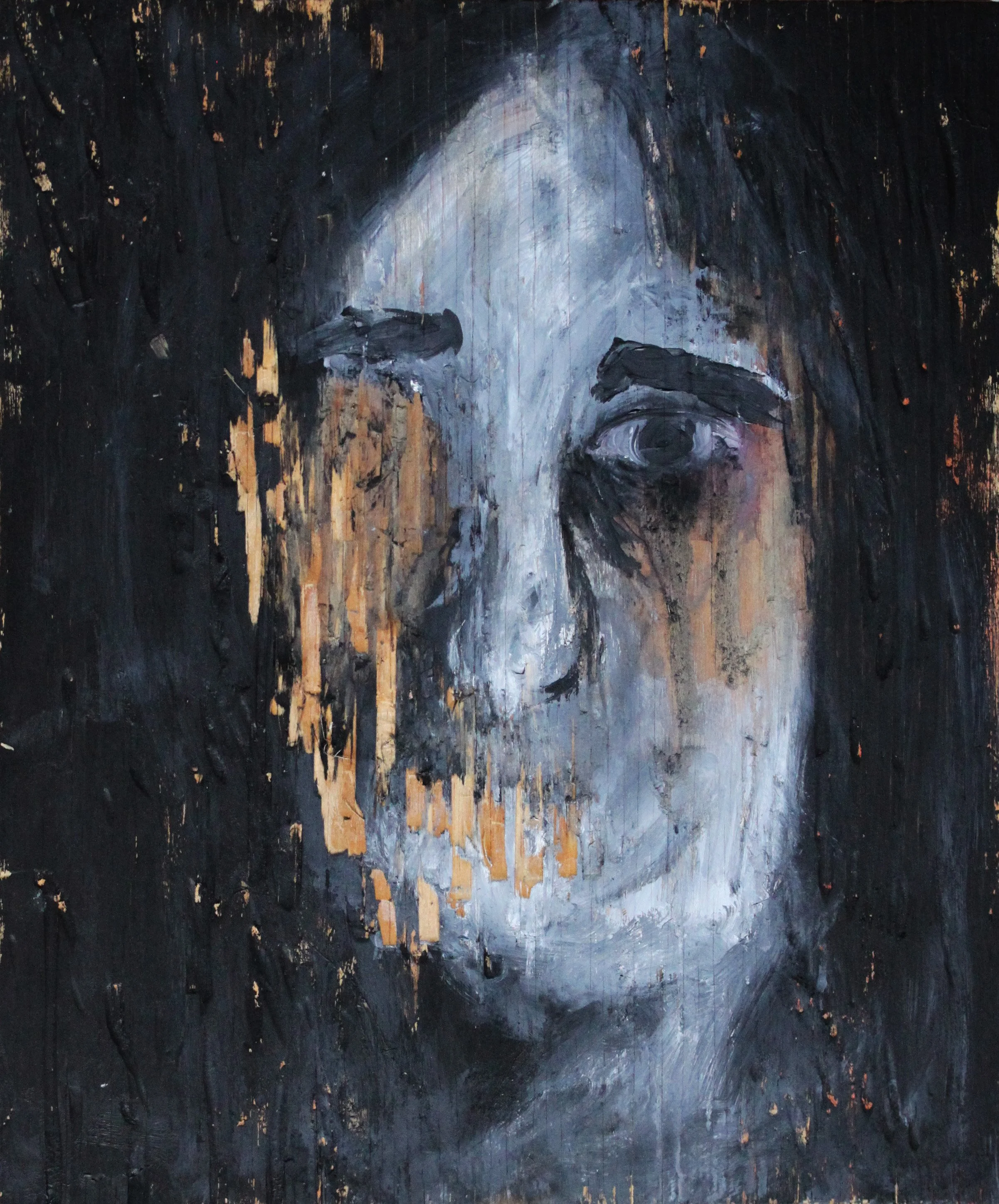

“Nobody is Safe”: reflections on a poem and the impacts of trauma.
A lot of folks who have experienced trauma develop beliefs about the world, and whether or not the world is a safe place. As a therapist, and as a client, I’ve heard so much about how traumatic experiences leave people believing that the world is an unsafe place, and how healing comes in the form of re-learning how to connect to a sense of safety in the world (when it’s appropriate). And that’s so true for many, many people.
But for me, trauma did the opposite. Instead of internalizing the belief that the world was unsafe, I found safety by believing that all the harm I experienced was my fault. The world? It’s a safe place. But me? I’m not a safe person.

Being asked to rate my pain from 0 to 10 gives me anxiety (and here’s one thing that helps me cope)
For me, it’s very hard to respond when medical providers ask me to rate my pain on a numbered scale. I’ve been dealing with chronic pain my entire life, and like many folks who live with chronic pain, I’ve also been minimizing, pushing down, ignoring, and invalidating my pain for my whole life, too.
When a provider asks me to rate my pain on a numbered scale, I’m not just being presented with the challenge of distilling the physical and emotional experience of pain down to a single number. I’m having to do a lot of challenging things, all at once:
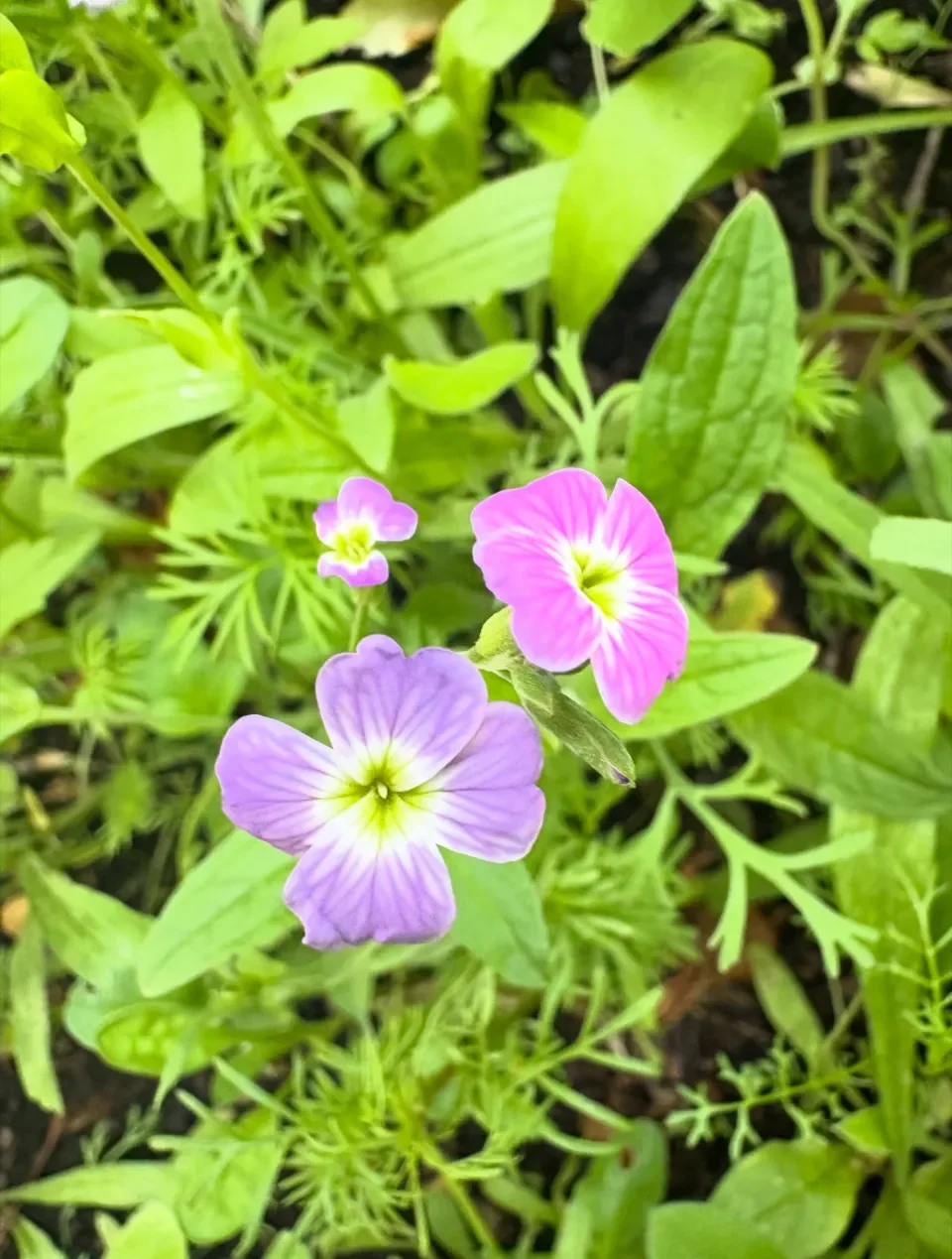
Reflections on Grief and Dialectical Thinking
For me, right now, the work of “holding both” feels more important than it ever has before.
“Holding both” is language I use a lot as a therapist. I first came across the concept in a DBT skills group I attended during undergrad and grad school. The concept of a dialectic (the D in DBT, which is an acronym for Dialectical Behavioral Therapy) is basically this: sometimes two things that feel opposite or contradictory can both be true at the same time. In the context of DBT, this is often discussed in the context of holding both acceptance and change. Accepting that things are the way they are, AND that change is necessary. Accepting that we are absolutely trying hard enough, AND that we need to change something in order to heal.
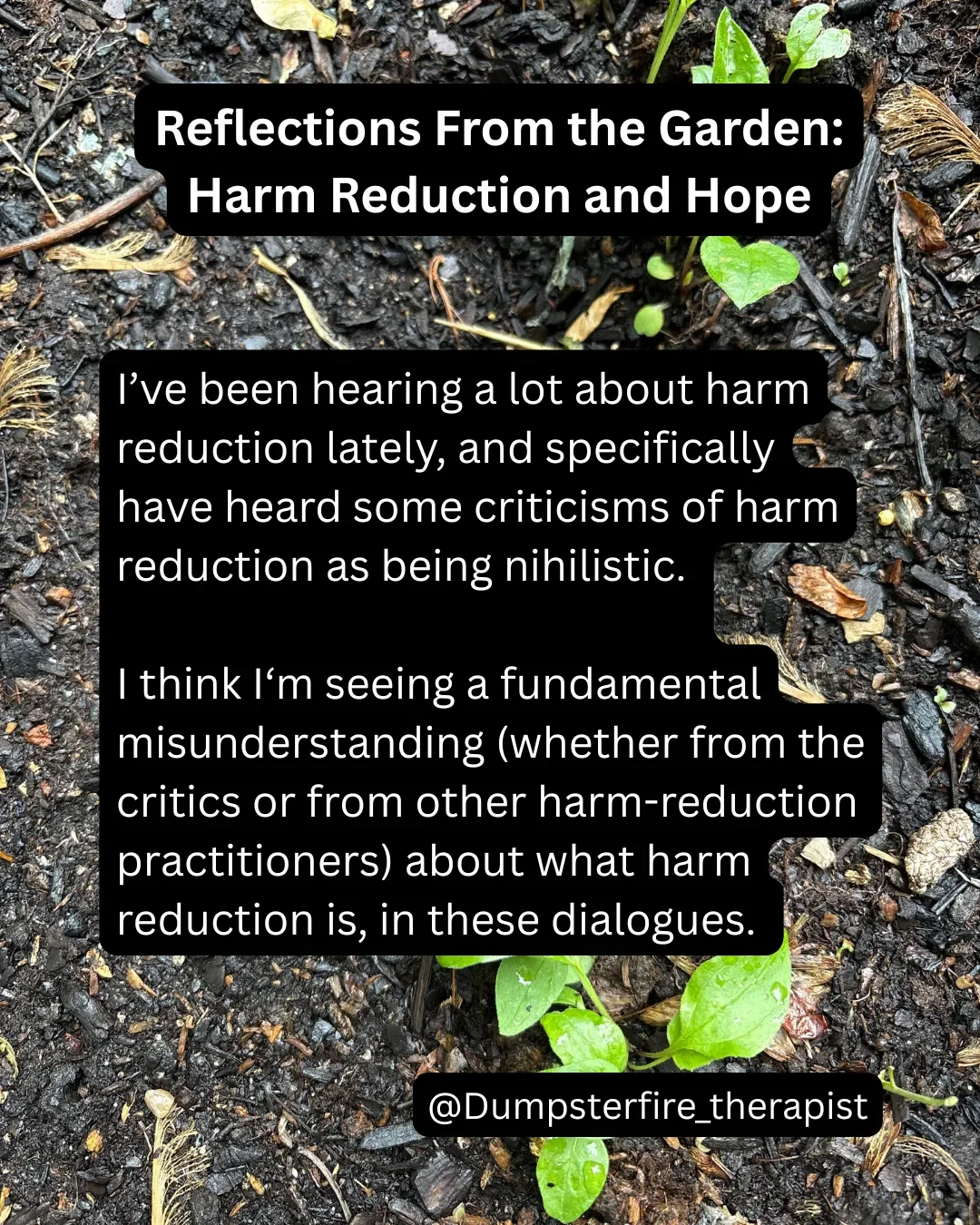
Reflections from the Garden: Harm-Reduction and Hope
Harm reduction is not about hopelessness. It’s not nihilism. It is–it must be–the opposite. Harm reduction requires us to hold radical hope for the future. It requires us to envision a world where our clients (and our selves) can heal, not so that we can be free in the future, but because we deserve to be free, right now.
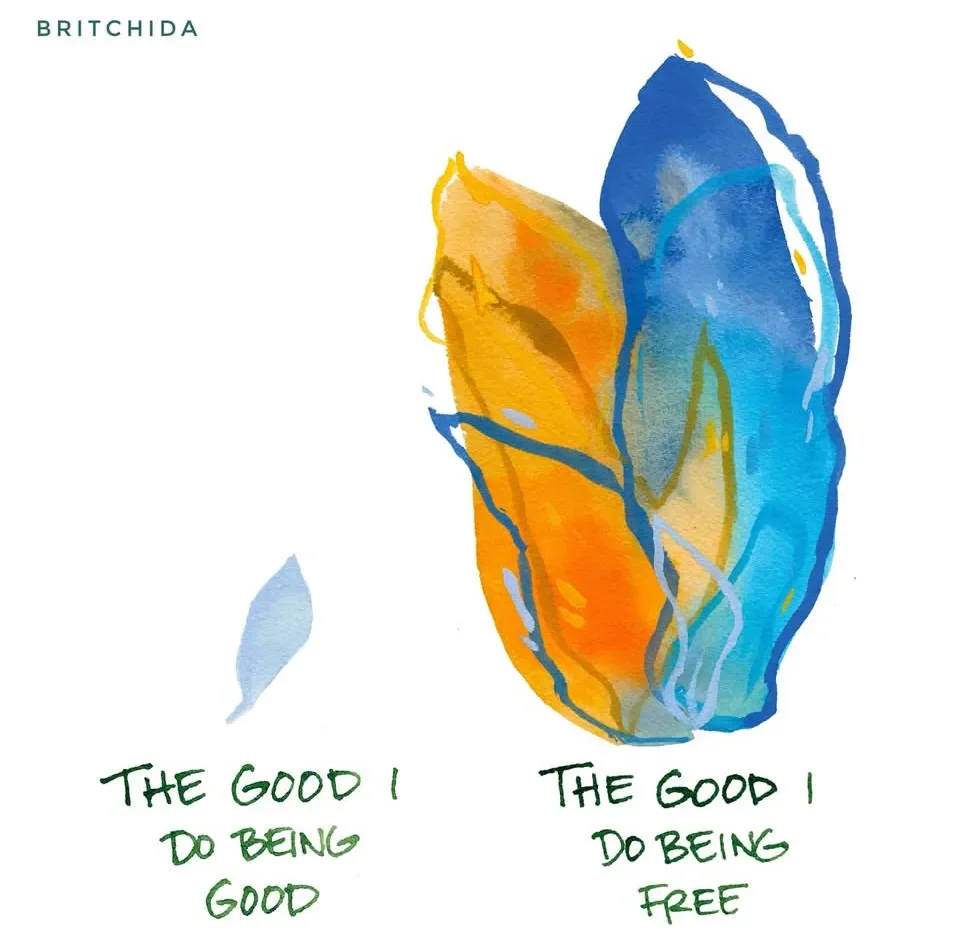
The Good I Do Being Free: Reflections on Autonomy, and the Traumas of Carceral and Coercive Care
I needed to do something with the pain, but at the time, I didn’t have the energy to explain why. I love to write, but I’m also exhausted. And I knew if I tried to write it down, it would just be repeating things I’ve always said, a thousand times over.
Instead of writing, I just went back to look for where I’d already written. I found the snippets of poems, the journal entries, the art, and any other places I’d already expressed this particular sorrow.
I first shared them to my Instagram stories, but in the next twelve hours those will begin to disappear. I wanted to keep the collection of poems, and images, and context. Some things aren’t meant to vanish.
So, here they are.

Reflections on Fear, and Being Human
I cannot stand long enough to go to a protest; but there are those who can, and will. There is no shame in being with the body that you have. No guilt in playing the hand you were dealt.
You do not have to sacrifice yourself, even for peace. Even to tear down the palace. With shame in one hand, and perfection in the other, you will destroy nothing except yourself.
The revolution may not be won without casualties, but that doesn’t mean it can’t be won with love.
Love can be loud. It can be angry. It can be unyielding. It can demand reparations. It can hold great sorrow and great joy all at once. It can grieve.

5 Ways Expressive Arts Therapy Supports Eating Disorder Recovery
When I first encountered expressive therapy, I was working towards my own recovery from an eating disorder. I wasn’t in my role as a therapist at the time, so I wasn’t thinking much about theories, or evidence, or why and how it was effective for treating eating disorders. But even so, I immediately knew it was for me. I knew it was going to help me. I just felt it.
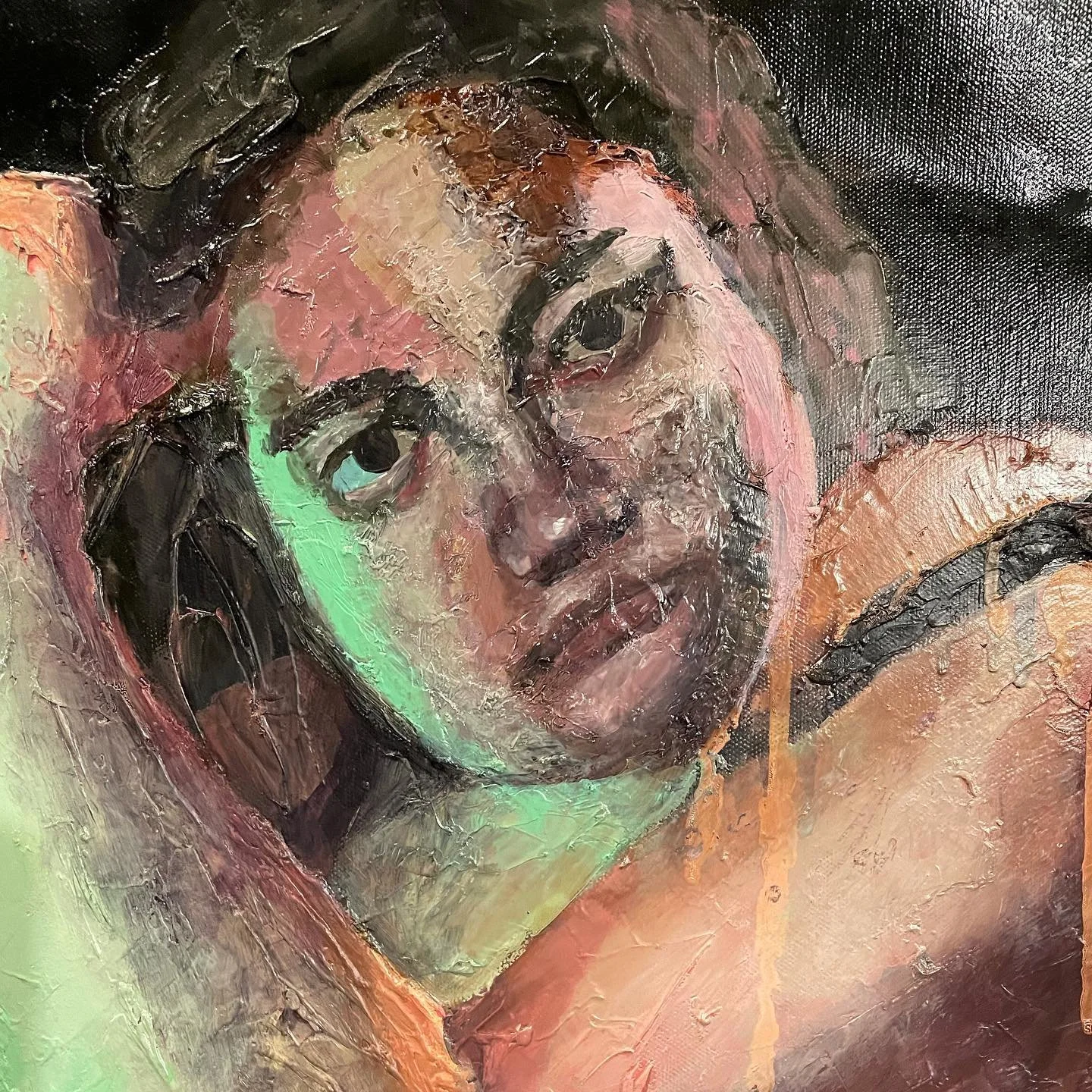
My Beliefs About Healing
One thing I often ask clients to do when we begin working together is to create a list of their core beliefs about themselves and the world. For so many of us, the lessons we learned in our past, especially as young children, stick with us for the rest of our life. We may have beliefs about our worth as people, our bodies, our relationships, and many other aspects of our lives. These beliefs can have a profound influence on the trajectory of our lives, and they are often at the root of our struggles with mental health.

Connection is at the Root of Healing
One of my core beliefs about recovery is that healing happens in relationships. So many of us have experienced trauma in our lives, and so often this trauma is linked to abuse or violence we experienced at the hands of other people. Eating disorder behaviors are often attempts to seek safety in the midst of lives that feel profoundly unsafe. By connecting with others and building relationships, we start to gather evidence that it can be safe to trust others. Slowly but surely, we can forge a sense of safety in our lives, so that we no longer need to use food, eating, and exercise to try and feel safe or in control.